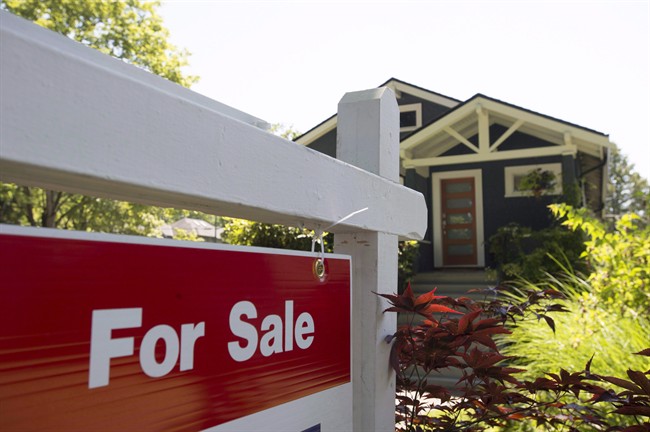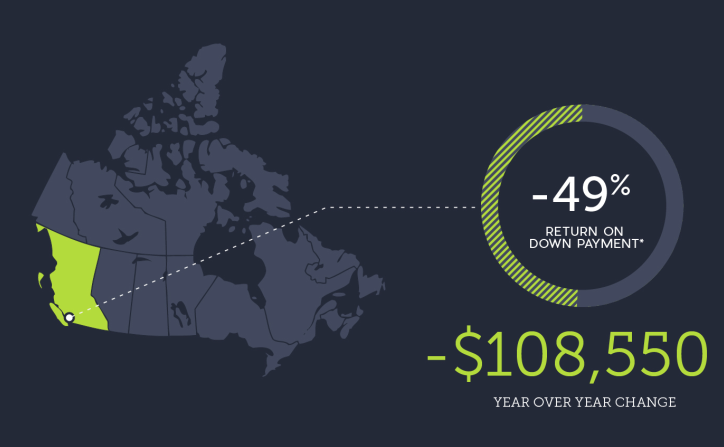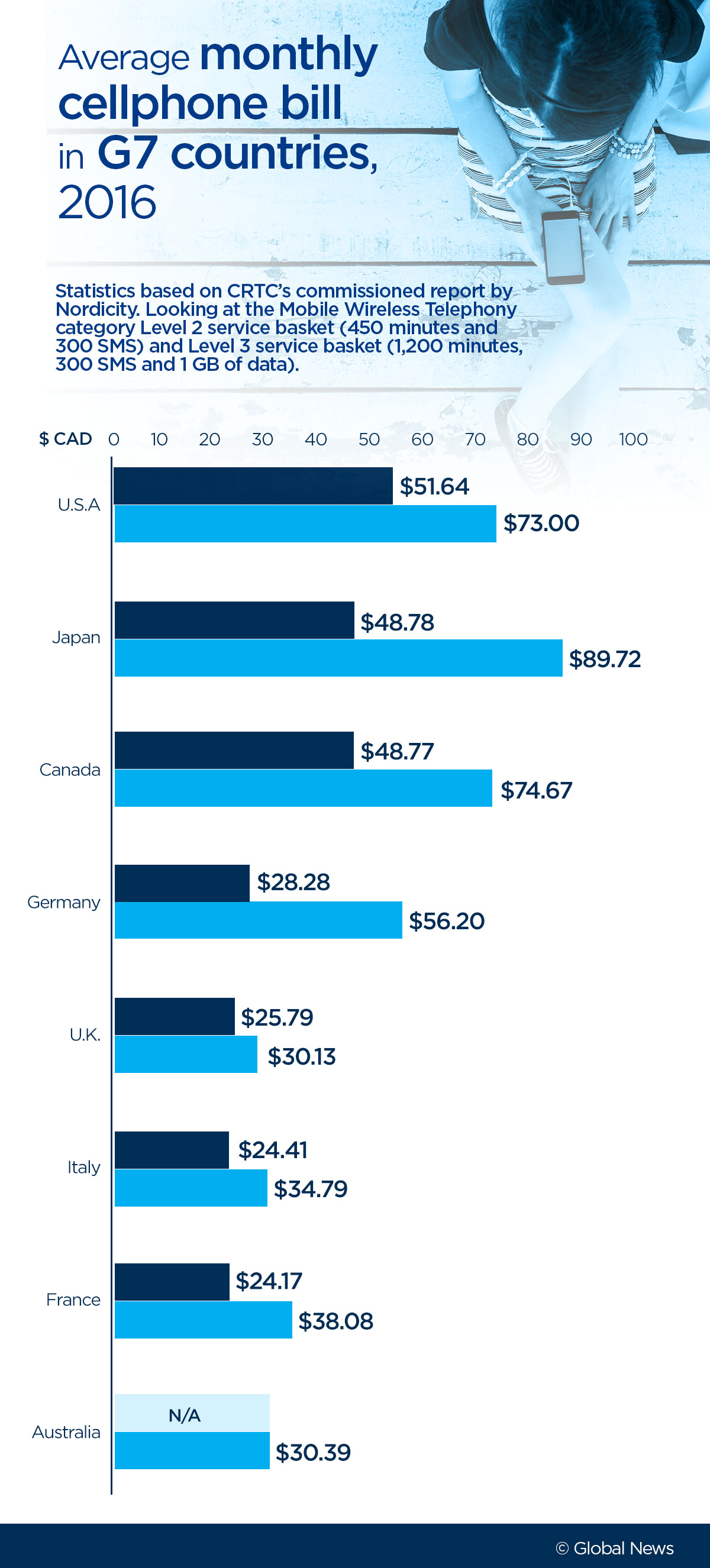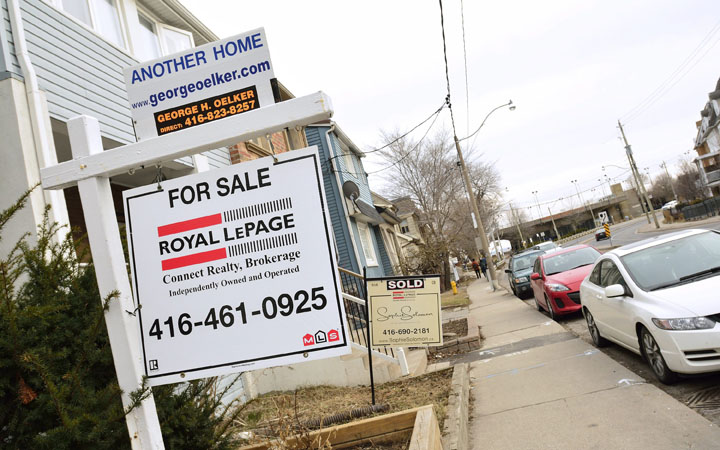“Think of your home as a long-term investment.”

That’s the advice of an infographic produced by Toronto-based real estate search site Zoocasa.
The graphic, which was released on March 17, shows how much money homebuyers would have gained or lost, a year after making down payments in February 2016.
Homebuyers in most major Canadian cities can rest easy — a majority showed a healthy return on investment.
READ MORE: 12 of Canada’s 15 most expensive homes for sale are in Metro Vancouver
But Vancouver? That’s another story.
Once considered Canada’s hottest locale for real estate, home values in the West Coast city took a beating over the course of a year, with the average home price dropping from over $1.1 million in February 2016 to $995,583 a year later.

A 20 per cent down payment on an average Vancouver home would have cost buyers $220,827 last year, Zoocasa determined using figures from the Canadian Real Estate Association (CREA).
This year? $199,117.
But those numbers don’t capture how much of a return on a down payment those buyers would have lost over the course of 12 months.
READ MORE: Homes under $1 million in Vancouver are virtually extinct
Zoocasa calculated the loss (or gain) of return by taking the year-over-year change in average home prices and then dividing it by the down payment buyers would have had to make in February 2016.
- What is a halal mortgage? How interest-free home financing works in Canada
- Capital gains changes are ‘really fair,’ Freeland says, as doctors cry foul
- Budget 2024 failed to spark ‘political reboot’ for Liberals, polling suggests
- Peel police chief met Sri Lankan officer a court says ‘participated’ in torture
By this measure, Vancouverites lost 49 per cent of the return on their down payments.
It was the only city out of the five Zoocasa mentioned that saw negative returns.
The method is a “simplistic way” to calculate return on investment, Aashti Vijh, a PR coordinator working with Zoocasa, told Global News.
But the formula is also “similar to how you’d find the return for other types of investments,” she added.
A more accurate calculation, she said, would account for items such as taxes, closing costs, mortgage interest and taxes, but those weren’t accounted for in Zoocasa’s infographic.
READ MORE: Toronto Real Estate Board sees another year of double-digit price increases
The best returns were witnessed in Toronto, where homebuyers gained 139 per cent, based on these calculations.
And the trends come as affordability becomes a growing concern in Toronto, the way it once dominated talk in Vancouver.
The average selling price in Toronto jumped 27.7 per cent year-over-year, to $875,983 last month, according to CREA.
In Vancouver, meanwhile, the average price fell 9.8 per cent to $995,583— still higher than Toronto, but diminishing.
Last week, BMO chief economist Douglas Porter issued a report showing that even the “rich” can’t afford to buy a family home in Toronto anymore.
He noted that a couple pulling in an income of $225,000 could ill-afford to buy an average-priced detached home in either Toronto’s 416 or 905 area codes, where prices run to $1.57 million and $1.11 million, respectively.
The best that the couple could hope for would be a semi-detached home in the 905 region, where the average price is $700,000.
But the region doesn’t have many houses like that, Porter noted.











Comments